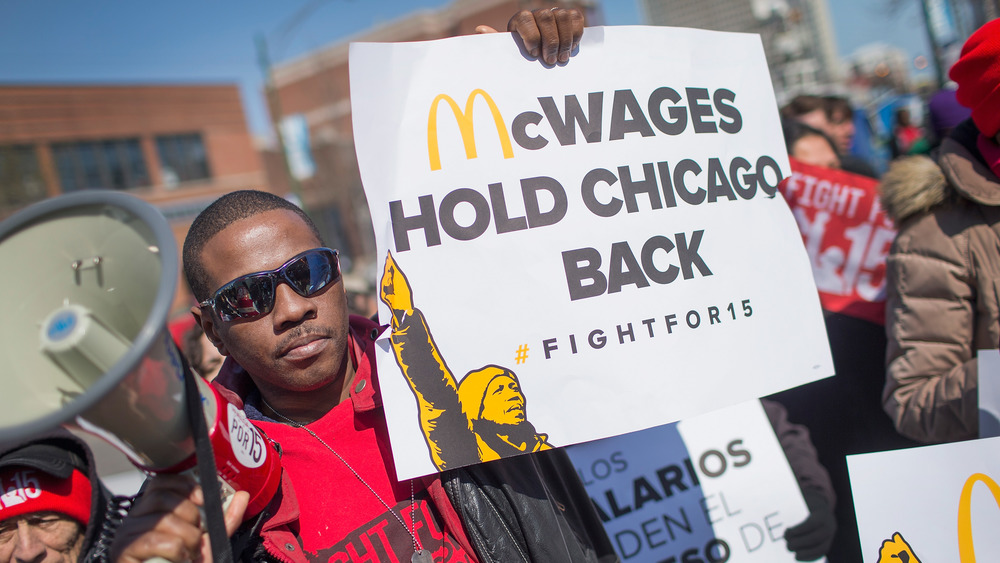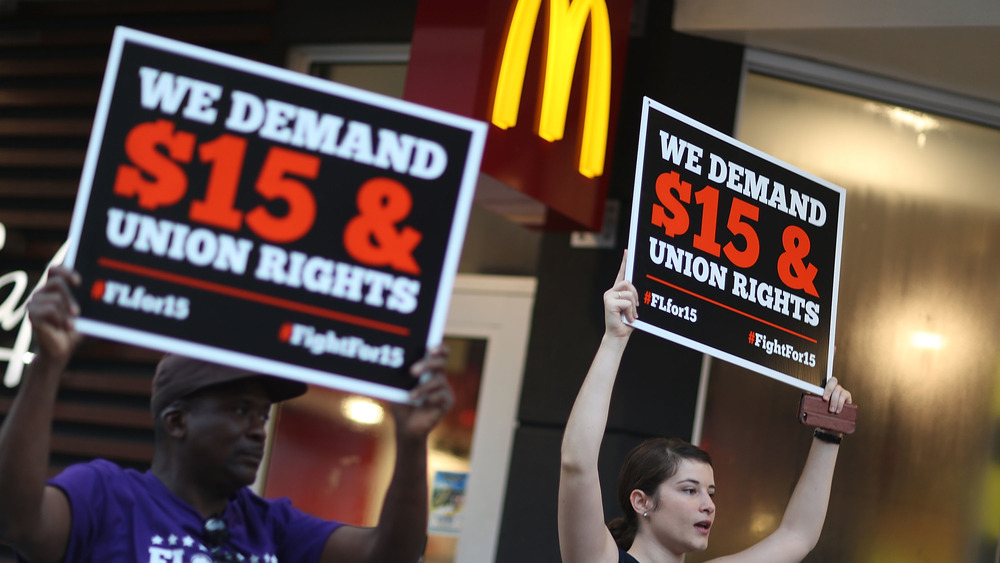The Reason Fast Food Workers Are Striking Across The US Again
Fast food workers hear your words of appreciation as they work on the "front lines" of the COVID-19 pandemic, risking their health to hand off burgers and chicken sandwiches at drive-thru windows across America. They want more than a thank-you, however. They want to be paid a living wage. That's why fast food workers in 15 cities walked away from their grills and went on strike on February 16 (via The Guardian).
"We see the big show you make of thanking us," Taiwanna Milligan, a McDonald's worker who makes $8.75 an hour, wrote in an op-ed published by Newsweek. "But to be honest, that hasn't translated into changes for my life. We were living on a razor's edge long before COVID-19 hit South Carolina. And we're living on it still."
Striking employees from McDonald's, Wendy's, and Burger King joined low-wage healthcare workers in cities in South Carolina, Michigan, California, Florida, and elsewhere. The action looked similar to nationwide fast food worker strikes that took place on January 15. Workers were asking for a $15-an-hour minimum wage, but they weren't directing this message at their bosses. The U.S. Congress is considering President Joe Biden's proposal to raise the federal minimum wage to $15 as part of a pandemic relief bill. The federal minimum wage is currently $7.25 and hasn't been raised since 2009. The increase is set to pass through the Democrat-led House of Representatives, but it will have a tougher time in a Senate that is evenly split.
A minimum wage of $15 would mean raises for nearly a third of Black workers
Fast food workers have a vocal ally in at least one U.S. senator: Bernie Sanders. On the morning of the strike, Sanders tweeted, "I stand in strong solidarity with fast food workers all over this country. ... The Senate must raise the minimum wage to $15 an hour with 51 votes this year. We have got to end the crisis of starvation wages in America."
Strikers also recognized Black History Month during the action. Fast Company noted that a mandatory $15 minimum wage would give raises to nearly a third of all Black workers in the U.S. "For decades, McDonald's has made billions in profit off the backs of workers like me," Milligan told The Guardian. "I'm striking today because I need at least $15 an hour to survive."
The Congressional Budget Office, which advises Congress on spending bills, gave a mixed review of the $15 minimum wage proposal. The office's report said the minimum-wage hike would give 17 million Americans raises but would also lead to reduced employment for 1.4 million workers. Studies in places like Seattle, which have had a higher minimum wage for a while now, show that some employers cut employees' hours as a result of the pay hike, causing workers to actually lose income (via The New York Times). Experts caution that studies like this are complicated and might not be accurate.

